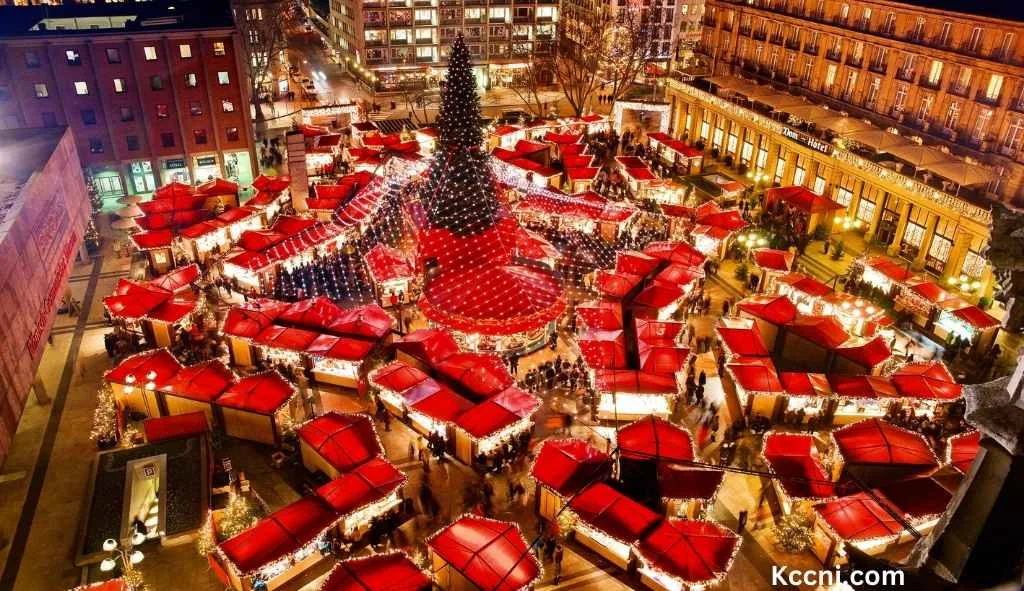10 Best Christmas Markets in Europe You Should Must Visit
The Christmas markets in Europe offer enchanting holiday experiences with festive decorations, traditional crafts, and seasonal treats. Top destinations include markets in Budapest, Prague, Nuremberg, Vienna, and Strasbourg, each showcasing unique local traditions and charm.
1) Budapest Christmas Market
The Budapest Christmas Market, known as the Advent Feast at the Basilica, has been recognized as one of the best Christmas markets in Europe. This festive event takes place in front of St. Stephen’s Basilica, creating a magical atmosphere in the heart of Hungary’s capital.
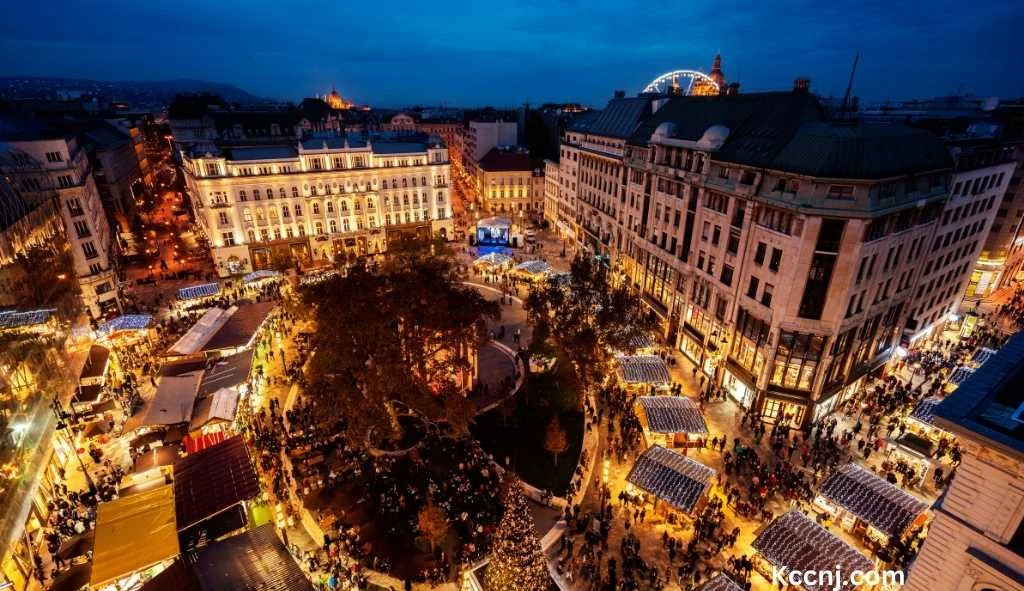
Dates and Location
The market typically runs from late November to early January. In 2024, it is scheduled to be open from November 17th to December 31st.
What to Expect
Visitors to the Budapest Christmas Market can enjoy:
- Over 100 craft stalls selling traditional Hungarian products
- An ice skating rink
- A spectacular light show projected onto the facade of St. Stephen’s Basilica
- Traditional Hungarian foods like chimney cake (kürtőskalács)
- Festive decorations and a large Christmas tree
The market’s unique blend of traditional and modern elements, along with its picturesque setting, makes it a must-visit destination for holiday travelers.
2) Prague Christmas Market
Prague’s Christmas markets transform the city into a winter wonderland, with the main markets located in the Old Town Square and Wenceslas Square. These markets are known for their beautiful setting amidst the city’s stunning architecture.
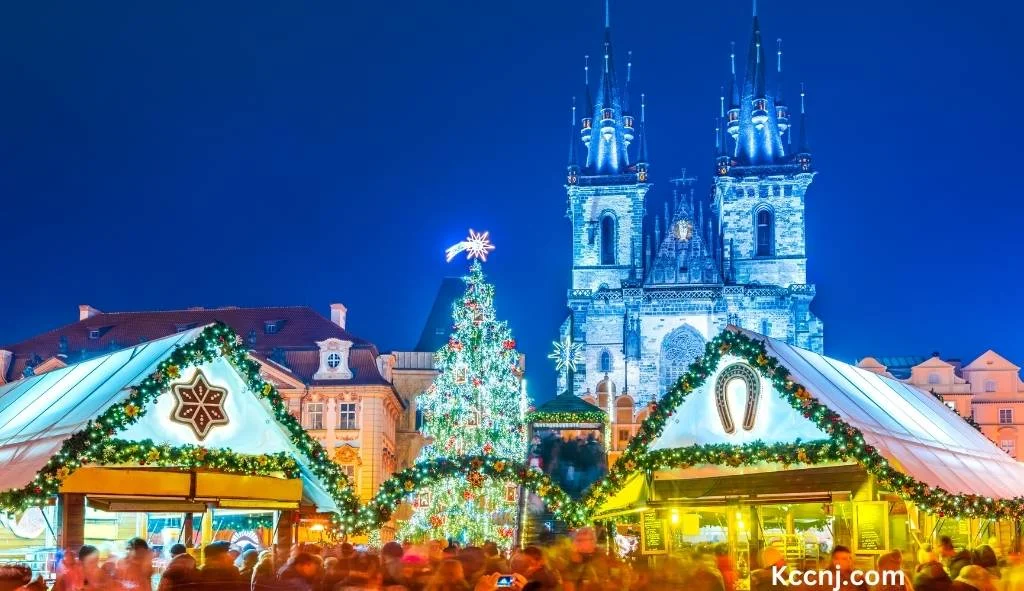
Dates and Location
The Prague Christmas markets are scheduled to run from November 30, 2024, to January 6, 2025. They are open daily from 10:00 AM to 10:00 PM.
Highlights
Key features of the Prague Christmas markets include:
- A giant Christmas tree in the Old Town Square
- Traditional Czech handicrafts and ornaments
- Local delicacies like trdelník (a sweet pastry)
- Live carol performances and nativity scenes
- Children’s workshops and animal petting zoos
The markets offer a perfect blend of holiday cheer and Czech culture, making them a favorite among visitors to Europe during the festive season.
3) Nuremberg Christkindlesmarkt
The Nuremberg Christkindlesmarkt is one of Germany’s oldest and most famous Christmas markets, known for its rich history and traditional atmosphere.
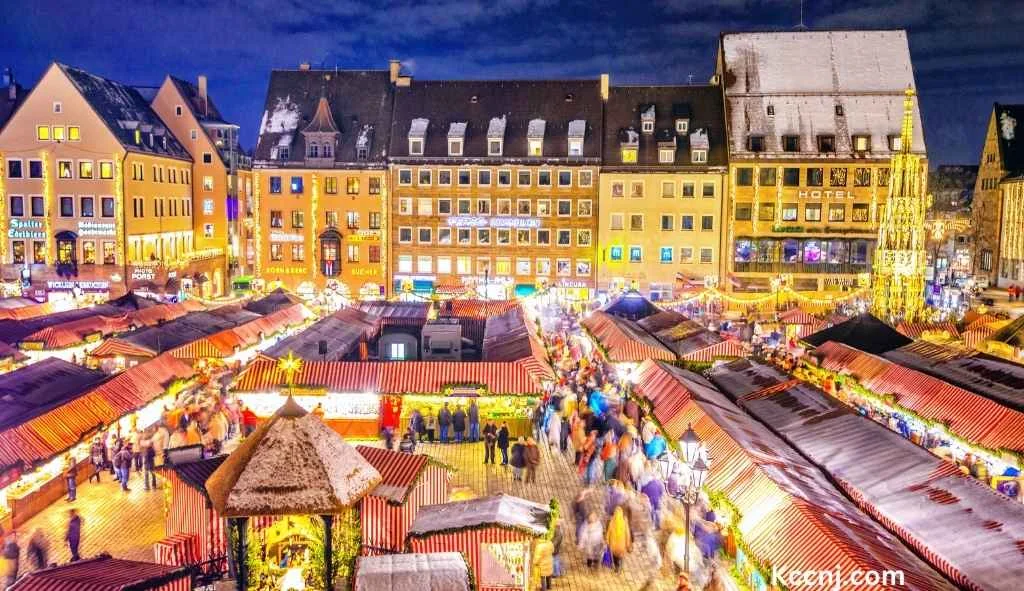
Dates and Location
The market is held in the Hauptmarkt, Nuremberg’s central square, from November 29 to December 24, 2024.
Market Traditions
Some unique aspects of the Nuremberg market include:
- The Christkind, a local girl chosen to represent the Christmas angel, who opens the market
- Strict rules on what can be sold, ensuring authentic and traditional products
- Famous Nuremberg gingerbread and sausages
- The Kinderweihnacht, a special area for children with old-fashioned rides and activities
The market’s commitment to tradition and quality makes it a standout among European Christmas markets.
4) Vienna Christmas World
Vienna hosts several Christmas markets, with the Wiener Christkindlmarkt at Rathausplatz being the largest and most popular. The Austrian capital’s markets are known for their elegant settings and high-quality offerings.
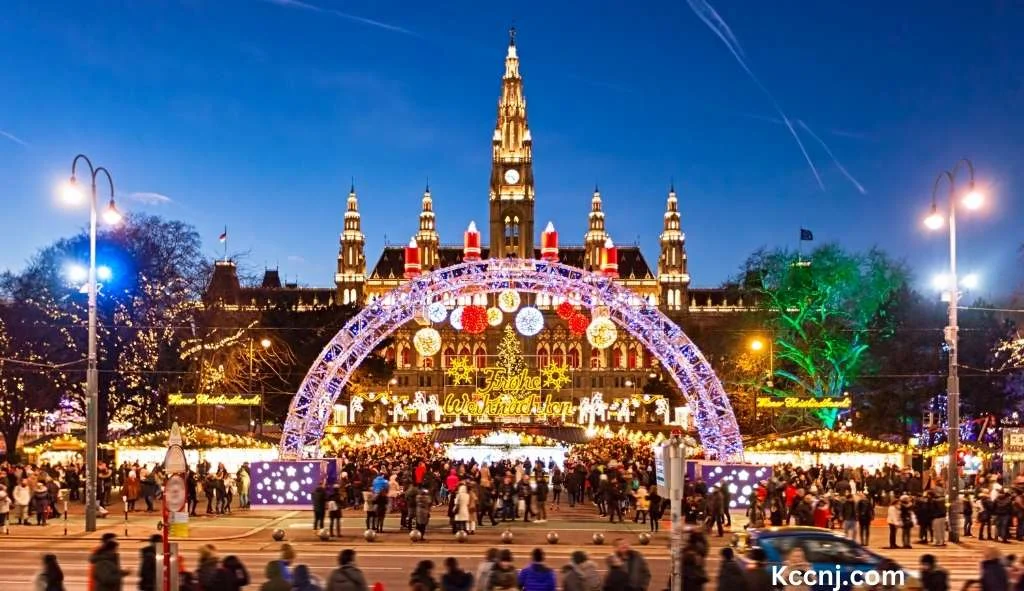
Dates and Location
The main market at Rathausplatz runs from November 15 to December 23, 2024.
Market Features
Visitors to Vienna’s Christmas World can enjoy:
- Over 150 stalls selling traditional Viennese and Austrian products
- An ice skating rink and carousel
- A tree decorated with hundreds of lights
- Workshops for children to make Christmas gifts
- Classical music performances
The combination of imperial architecture, classical music, and festive cheer creates a uniquely Viennese Christmas experience.
5) Strasbourg Christmas Market
Strasbourg, known as the “Capital of Christmas,” hosts one of the oldest Christmas markets in Europe, dating back to 1570. The city’s Alsatian charm and French-German cultural blend make its market particularly special.
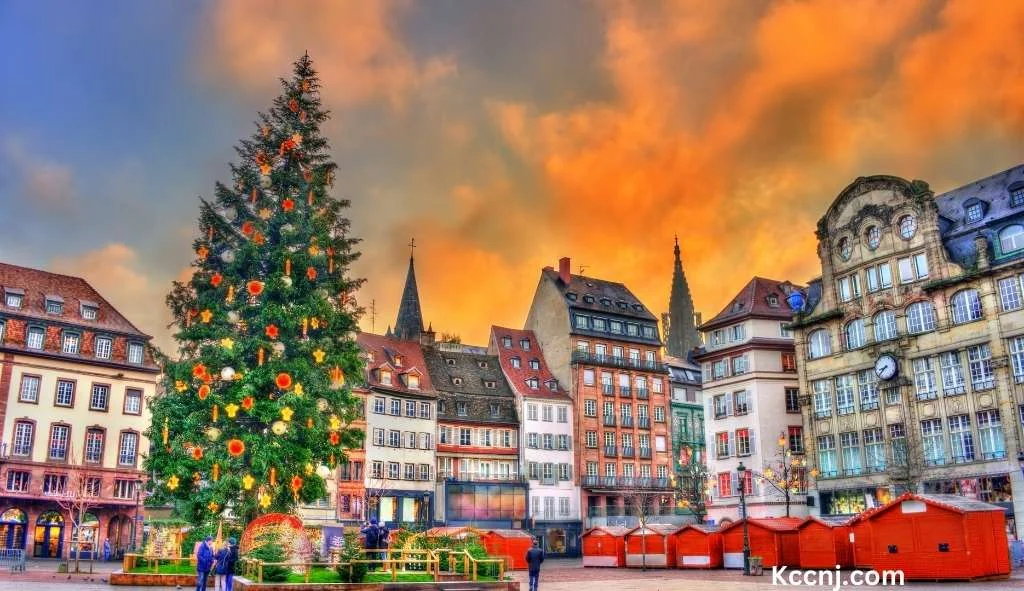
Dates and Location
The Strasbourg Christmas Market is held from November 22 to December 24, 2024, spread across several squares in the city center.
Market Highlights
Key features of the Strasbourg market include:
- Over 300 stalls spread across 10 locations in the city
- The Great Christmas Tree in Place Kléber
- Alsatian specialties like bredele cookies and foie gras
- Themed villages focusing on different aspects of local culture
- A special guest country pavilion showcasing international Christmas traditions
The market’s size, variety, and historical setting make it a top destination for Christmas market enthusiasts.
6) Cologne Christmas Markets
Cologne boasts not one but several Christmas markets, each with its own theme and atmosphere. The city’s markets are among the most visited in Germany.
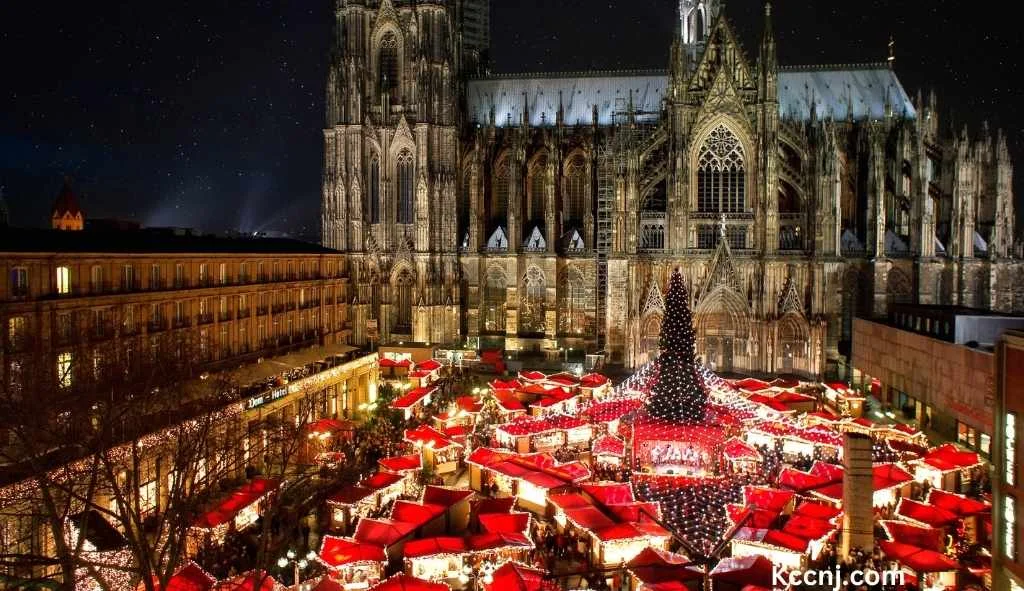
Dates and Locations
The markets run from November 25 to December 23, 2024, with the main ones located at the Cathedral, Alter Markt, Neumarkt, and Rudolfplatz.
Market Diversity
Cologne’s Christmas markets offer:
- The Cathedral Market, with the largest Christmas tree in the Rhineland
- The “Heinzel” Market at Alter Markt, featuring gnome figurines
- The “Angel” Market at Neumarkt, known for its festive decor
- The “Village” Market at Rudolfplatz, with a medieval theme
Each market has its own character, allowing visitors to experience different aspects of German Christmas traditions.
7) Edinburgh’s Christmas
Edinburgh’s Christmas market transforms the Scottish capital into a winter wonderland, offering a unique blend of traditional and contemporary festive experiences.
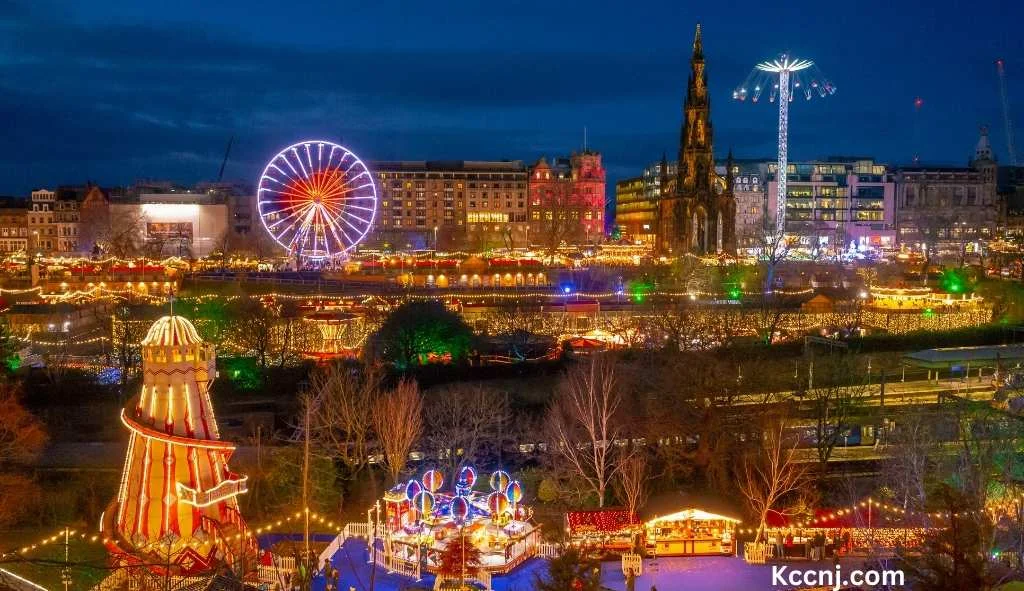
Dates and Location
The market typically runs from mid-November to early January, with the main events centered around East Princes Street Gardens and George Street.
Scottish Flair
Edinburgh’s Christmas features:
- A traditional Highland Village showcasing Scottish crafts and food
- An ice rink with views of Edinburgh Castle
- The Star Flyer, offering panoramic views of the city
- Santa’s Grotto for children
- A mix of Scottish and international food and drink stalls
The market’s setting against the backdrop of Edinburgh’s historic Old Town adds to its charm and appeal.
8) Brussels Winter Wonders
Brussels Winter Wonders is more than just a Christmas market; it’s a festive takeover of the city center, offering a wide range of holiday activities and attractions.
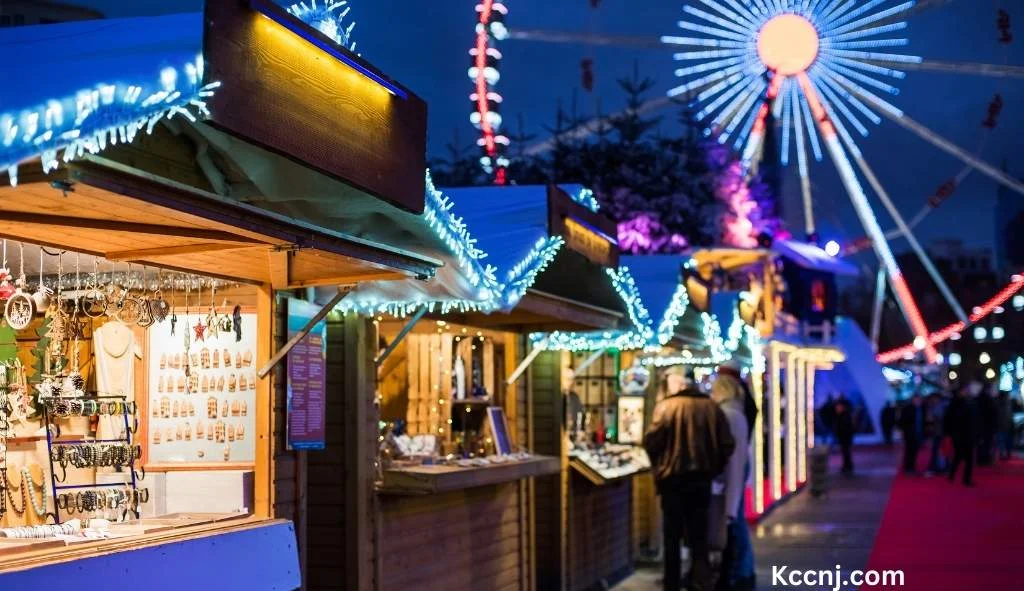
Dates and Location
The event runs from late November to early January, with the main activities centered around the Grand Place, Bourse, Place Sainte-Catherine, and Marché aux Poissons.
Market Attractions
Brussels Winter Wonders includes:
- Over 200 chalets selling gifts, decorations, and food
- A sound and light show at the Grand Place
- An ice skating rink and Ferris wheel
- A covered food court featuring international cuisines
- Parades and street performances
The event’s scale and variety make it one of the most comprehensive Christmas experiences in Europe.
9) Copenhagen Christmas Markets
Copenhagen’s Christmas markets offer a cozy, Scandinavian take on holiday traditions, with several markets spread throughout the city.
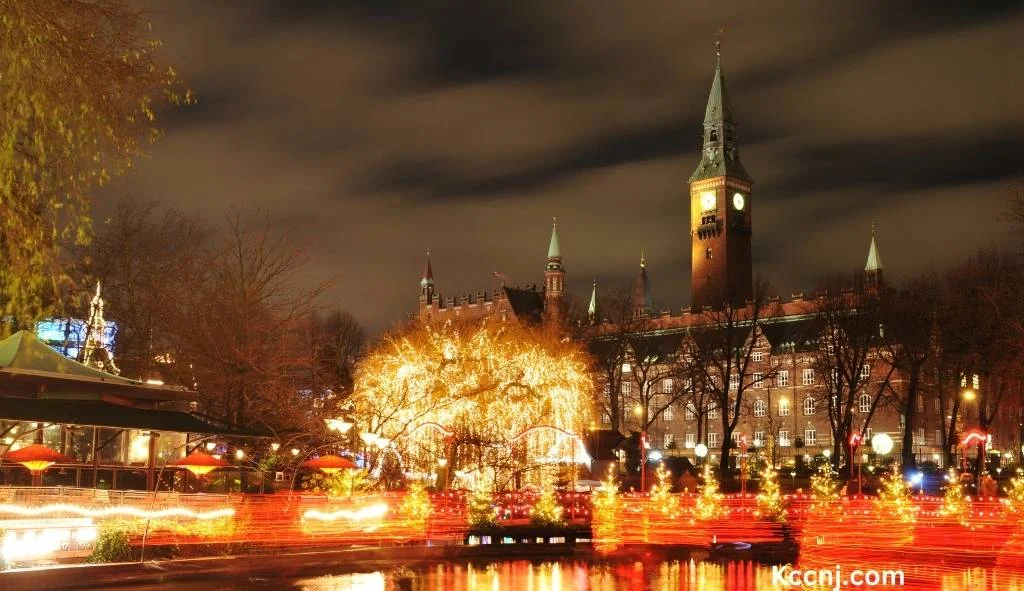
Dates and Locations
The markets typically run from mid-November to late December, with notable locations including Tivoli Gardens, Nyhavn, and Kongens Nytorv.
Danish Hygge
Copenhagen’s Christmas markets feature:
- The famous Tivoli Gardens market with its millions of lights and rides
- Traditional Danish Christmas foods like æbleskiver and gløgg
- Handcrafted gifts and decorations
- Ice skating rinks and Christmas parades
- The Royal Copenhagen Christmas tables display
The markets embody the Danish concept of hygge, creating a warm and inviting atmosphere despite the cold weather.
10) Krakow Christmas Market
Krakow’s Christmas market, held in the city’s medieval Main Square, offers a traditional Polish Christmas experience with a rich historical backdrop.
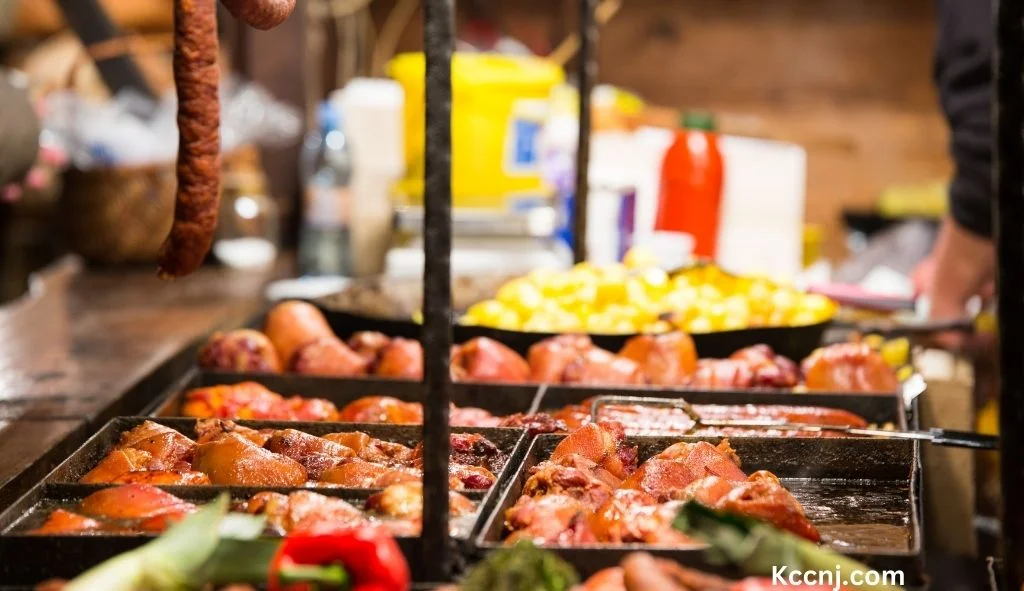
Dates and Location
The market runs from late November to early January in the Rynek Glowny (Main Square).
Polish Traditions
Visitors to Krakow’s Christmas market can enjoy:
- Handcrafted Polish ornaments and folk art
- Traditional Polish foods like pierogi and oscypek (smoked cheese)
- Carol singing and folk dance performances
- A competition for the best nativity scene (szopka)
- Horse-drawn carriage rides around the Old Town
The market’s setting among Krakow’s Gothic and Renaissance architecture adds to its magical atmosphere.
FAQs About European Christmas Markets
- When is the best time to visit European Christmas markets?
Most markets open in late November and run through December, with some extending into early January. The best time to visit is typically early to mid-December when the markets are in full swing but not yet at their busiest. - What are some typical foods found at European Christmas markets?
Common foods include gingerbread, roasted chestnuts, sausages, potato pancakes, and various local specialties. Drinks like hot chocolate are also popular. - Are European Christmas markets suitable for children?
Yes, many markets have special areas or activities for children, including carousels, Santa’s grottos, and craft workshops. - How should I dress for visiting Christmas markets?
Dress warmly in layers, as most markets are outdoors. Comfortable, waterproof shoes are essential, as you’ll likely be doing a lot of walking on potentially snowy or icy surfaces. - Can I buy authentic local crafts at these markets?
Yes, many markets prioritize local and handmade products. However, it’s always good to check the origin of items if authenticity is important to you. - Are Christmas markets in Europe expensive?
Prices can vary, but many markets offer affordable food and drinks. Handcrafted items and specialty foods might be more expensive. Entrance to most markets is free. - Do I need to book tickets in advance for Christmas markets?
Generally, entrance to Christmas markets is free and doesn’t require tickets. However, some special events or popular markets in cities like London might require advance booking. - What’s the difference between German and other European Christmas markets?
German markets often have a more traditional feel and are known for their glühwein and lebkuchen. Other countries incorporate their own local traditions and specialties. - Are Christmas markets crowded?
Popular markets can get very crowded, especially on weekends and closer to Christmas. Visiting on weekdays or earlier in the season can help avoid the biggest crowds. - Can I pay with credit cards at Christmas markets?
While some vendors accept cards, many still prefer cash. It’s best to have some local currency on hand for smaller purchases.

